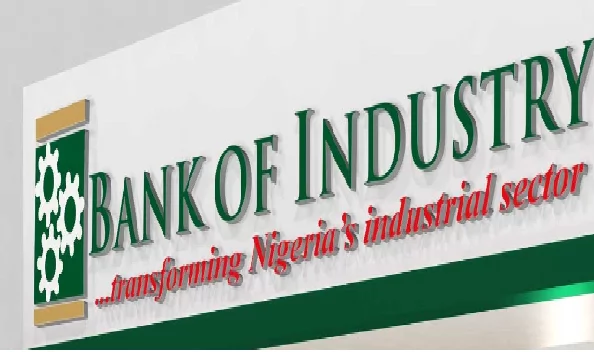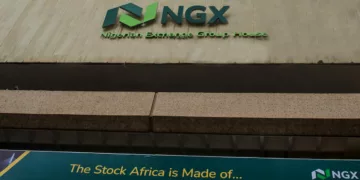From 2017 to date, the Bank of Industry(BOI) has raised over $5billion from the international financial markets to support Micro, Small and Medium Enterprises(MSMEs) as well as the industrial sector of the nation’s economy, LEADERSHIP learnt.
Under its current management, led by the managing director/CEO, Mr Kayode Pitan, the bank concluded six key capital-raising transactions from the international financial markets between 2017 and now, thereby, increasing the bank’s financial muscle to lend to MSMEs, even as the benefiting firms have used the BOI loans to expand their businesses, create jobs, wealth and poverty reduction.
The bank disclosed that, the first of the transactions was a $750million syndication concluded in 2017 with the support of Afreximbank and a team international FIs (now fully paid off).
The second and third were the Euro 1billion syndication closed in March 2020 and another $1billion syndication that closed in December 2020 (to be fully paid off by December 2023).
The bank’s maiden Eurobond of €750 million, concluded in February 2022 was the 4th transaction. This transaction marked the first of its kind in several ways to the bank, Nigeria and Africa as this deal was the bank’s first Eurobond transaction and the first Euro-denominated Eurobond transaction in Nigeria.
The transaction was also the first Eurobond transaction covered by Nigeria’s sovereign guarantee, hence, represents a benchmark for other prospective issuers from the African continent, even as it earned the bank, the Agency Bond Deal of the Year award at the 2023 Awards event of the Bonds, Loans and ESG Capital Markets in Capetown, South Africa.
The 5th capital raising transaction was the €1billion guaranteed senior loan facility concluded in August of 2022, a deal that represents the first of its kind, by any Nigerian financial institution, both in terms of its size and structure. Through this transaction, the bank raised liquidity at affordable rates and diversified its funding sources by attracting new lenders at a time when the international capital markets were prohibitively expensive and shut to many borrowers.
A €100 million line of credit from the French Development Agency (AFD) was also concluded in August 2022 representing the 6th capital raising. Through this credit facility, the bank can expand its financing interventions in environmentally friendly and green projects while a grant of €2.5 million was also included in this deal to support capacity building for both staff and customers.
On developmental impact, BOI said, it disbursed N210.7 billion to 418,436 beneficiaries in 2022 through its direct and indirect lending platforms and through funds that it manages on behalf of its strategic partners, adding that,
it’s intervention programmes, which traversed several sectors and segments of the Nigerian economy, did not only contribute significantly to its national goals of economic recovery and millions of job creation but also empowered Nigerian businesses, especially micro, small and medium enterprises, to remain in operations sustainably.
BOI equally disclosed that it has disbursed over N418 billion to 41,654 beneficiaries in Food and Agro Processing, and about 88,700mt of rice and maize was produced.
From 2016, the bank said, the leadership of Kayode Pitan has demonstrated commitment and innovativeness that have improved the bank’s fortunes, noting that, the bank’s total assets have grown by an impressive 248% between 2016 and 2022, reaching N1.71trillion by the end of 2021 and closing at N2.38trillion as of December 2022.
“BOI has also grown its equity position by 95 per cent since 2016 – from N220billion to N430billion ($935mn) in December 2022, exceeding the regulatory requirement of N10bn ($ 26mn) for retail Development Finance Institutions(DFIs).
“Profit before tax (PBT) jumped by 325 per cent between 2016 and 2022, from N17billion to N72billion. The bank has contributed to the national budget by paying dividends of approximately N28.9billion and taxes amounting to N30.4billion. Generally, the bank typically distributes 15% of its net income as dividends. With over 85 per cent of loans backed by a guarantee and with aggressive recovery efforts, the Bank has historically been able to maintain a non-performing loan (NPL) rate below the regulatory threshold of five per cent,” the bank pointed out.
Similarly, its Gross earnings grew by 15.4 per cent to N212.96 billion in 2022 from N184.55 billion in 2021. In the same vein, interest income improved by 21.1 per cent in 2022 to N212.96 billion from N175.83 billion in the previous year as Revenue from both customer loans and investments was responsible for this growth.
Profit before tax improved by 15.6 per cent to N71.99 billion in the year from N62.28 billion in 2021, with a remarkable growth in interest income and other income lines, alongside the reduction in impairment charges, facilitating this appreciable growth.
Total equity grew by 11.7 per cent to N429.83 billion from N384.85 billion in 2021, while loans and advances improved by 3.2 per cent to N805.46 billion from N780.48 billion in 2021.
Reacting to this, its managing director/CEO, Mr Kayode Pitan, attributed these and other achievements to the collective efforts of the Board, management and staff, his predecessors, its partner banks that provide credit enhancements and the unflinching support of its owners (the Federal Ministry of Finance Incorporated and the Central Bank of Nigeria), the Federal Ministry of Finance, Budget and National Planning and its supervising ministry, the Federal Ministry of Industry, Trade and Investment with whom it has a harmonious relationship.
Stating that the high hopes of the bank to build on its previous achievements and its resilience were tested in a global economic storm with strong headwinds, as the national economy shrank by 1.8%, in 2020, its most profound decline since 1983, he added that, the COVID-19 crisis drove the economic slowdown; capital outflows marked the external context, intensified risk aversion, low oil prices, and shrinking foreign remittances.
With economic activities grounded by COVID-19 and many businesses struggling for survival, he said, the Bank of Industry, as a development financial institution catering to thousands of MSMEs as well as large enterprises, came under additional pressure because it also had to support its numerous customers to survive.
But the story of 2022 told by the bank’s financial results and other achievements showed a remarkable successes of its Board and management that also emphasised its resilience, he pointed out.
On infrastructure development, he said, the bank continuously improves its internal processes for managerial efficiency, noting that, the number of BOI State offices/branches nationwide increased from 21 in 2016 to 31 in 2022, and that last year, it completed the construction of BOI Tower 2 in Abuja, a thirteen-floor Eco friendly office complex with a six-level car park structure, to provide its workers with a modern and efficient workspace to better serve customers.
However, market observers believe that the key to the long list of achievements of BOI is the robust industrial harmony in the company, describing Pitan as an engaging and peaceful man, traits which are the hallmarks of his management style.
But Pitan also credits the bank’s board chairman, Alhaji Aliyu Abdulrahman Dikko, for the growth-enabling climate in the bank and describes him as ‘a calm and experienced team player, always eager for improvement and service to the country.’
Stressing that the bank is equally implementing some government programmes, he listed the Government Enterprise Empowerment Programme (GEEP) and N-Power Social Investment Programmes, under which BOI facilitated the disbursement of N68billion ($ 188.5mn) to 2.9million beneficiaries.
The bank, he noted, has equally disbursed N569.3million ($1.6million) to 56,934 beneficiaries under the North-East Rehabilitation Fund(NERF), a BOI fund meant to rejuvenate the economies of the 6 States in North-Eastern Nigeria affected by the adverse impact of insurgency over the years.
“Under the MSME Survival Fund Scheme (part of the Nigerian Economic Sustainability Plan), BOI facilitated the disbursement of the N75 billion MSME Survival Fund. To date, N66 billion ($156million) has been disbursed to 1,258,188 beneficiaries under the scheme.
“Similarly, over N22.3 billion was disbursed to 1,309 SME beneficiaries under the NEPC Export Expansion Facility; over $300 million disbursed to local players in the Oil & Gas sector with no default under the Nigeria Content Intervention Fund while BOI is the executing agency for the FGN/Islamic Development Bank for BRAVE programme designed to increase female entrepreneurs’ economic opportunities, especially, in conflict and social unrest,” the bank emphasised.
In the last six years under the current management, the Bank of Industry has received over 20 awards and recognitions, including 12 in 2022, for outstanding performance and commitment to driving economic growth in Nigeria.











